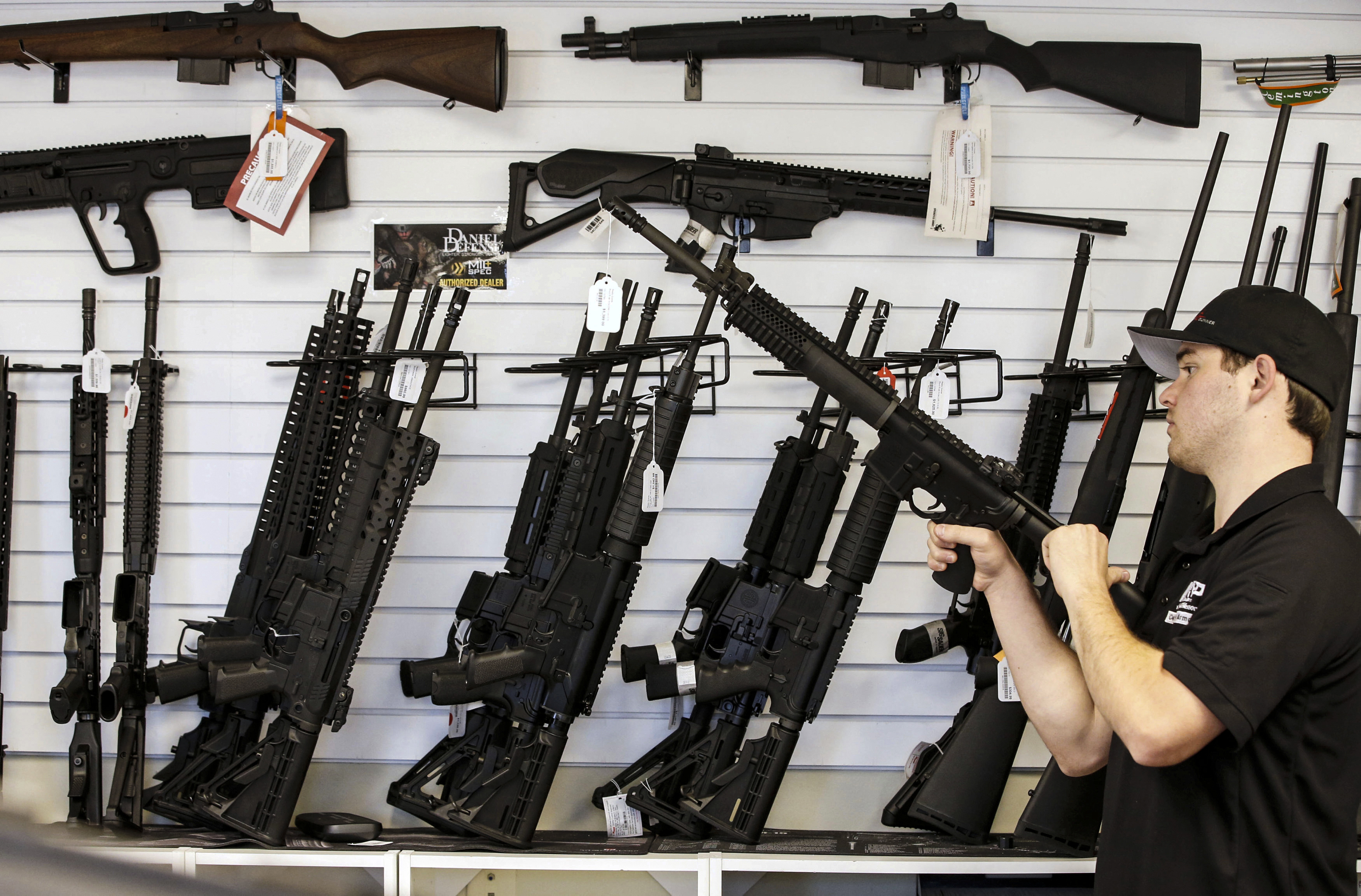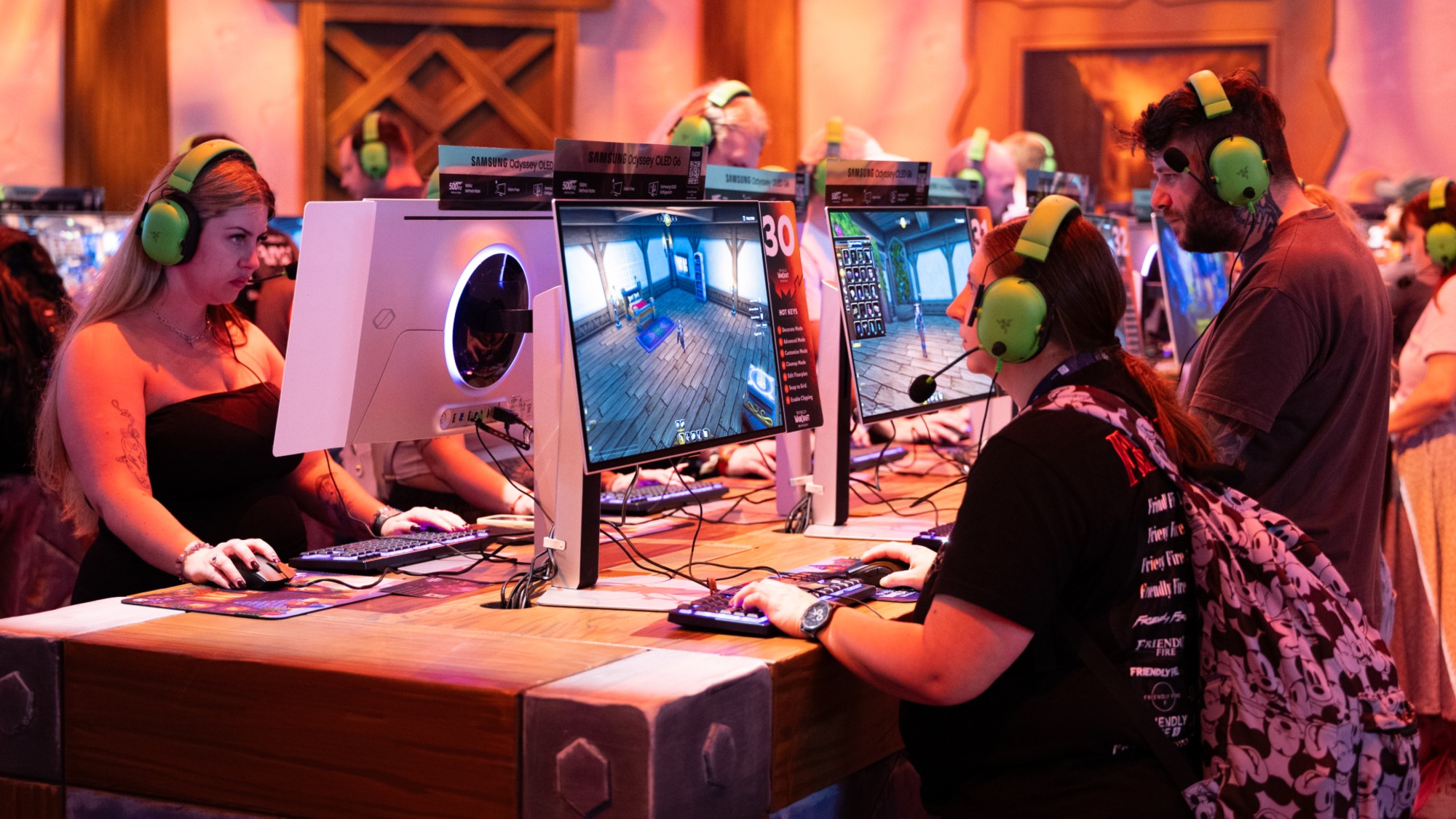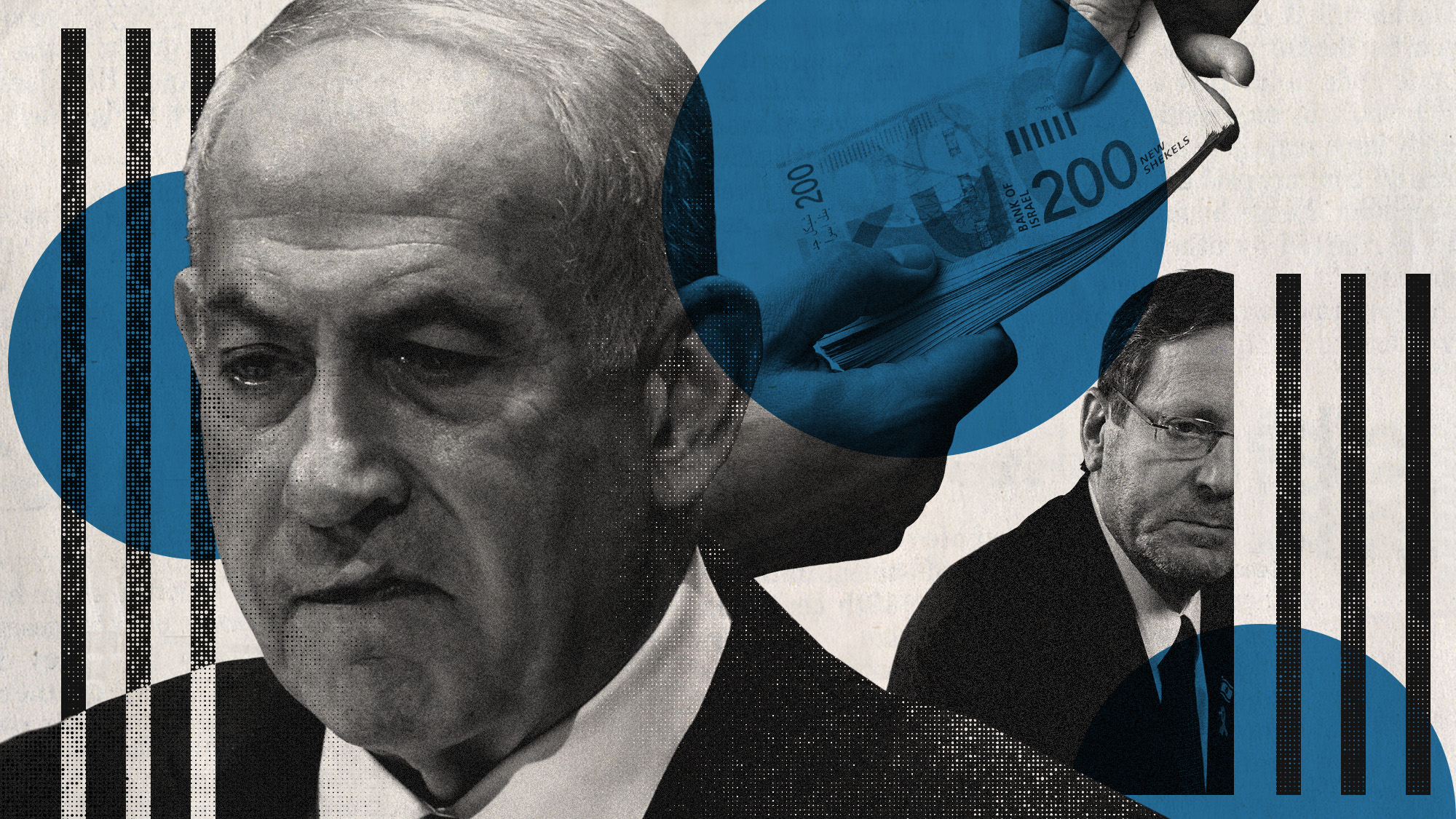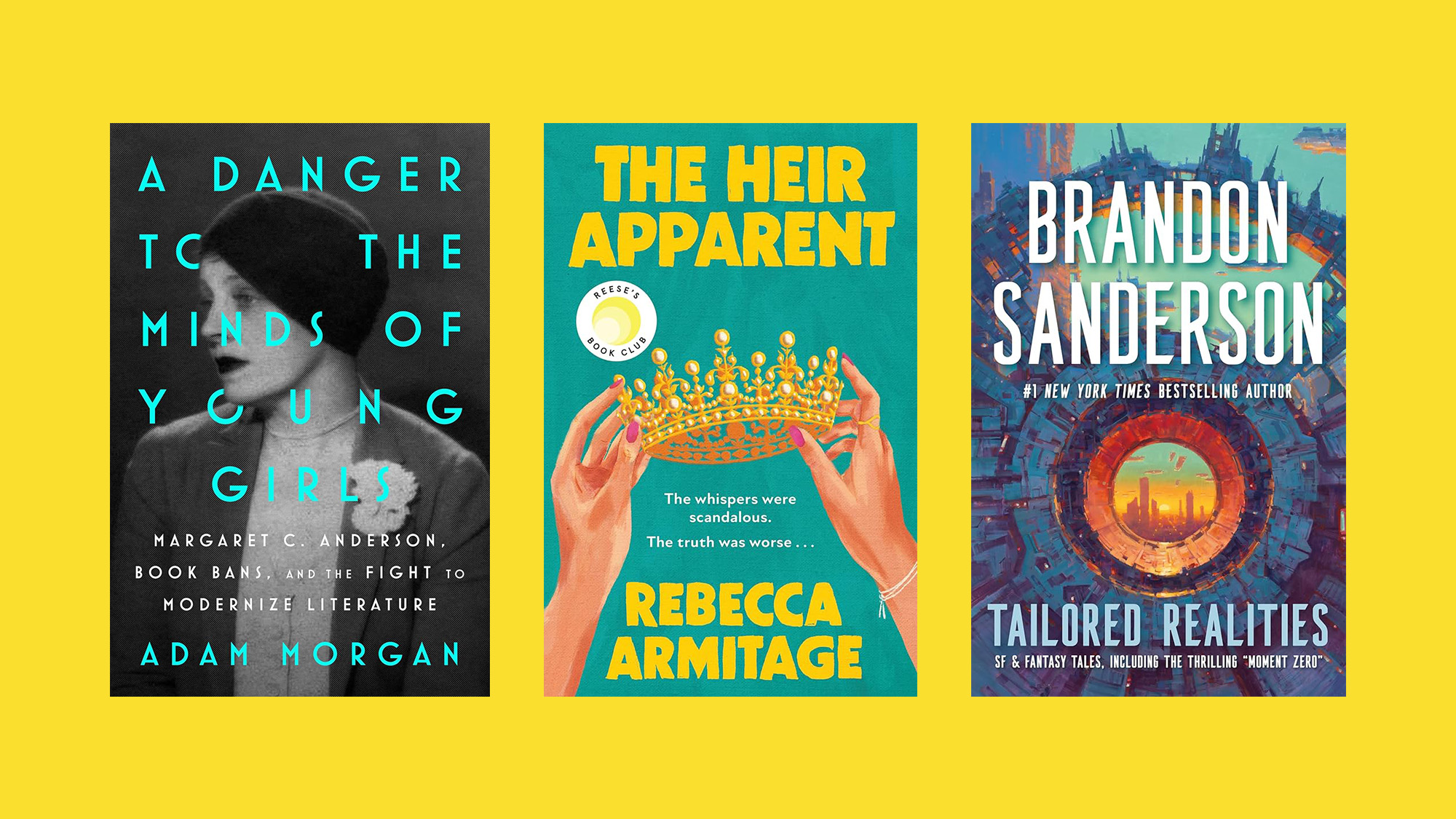The problem is guns
America has a staggering amount of gun violence. Why? The answer is obvious.


Stephen Paddock opened fire on a country music festival in Las Vegas over the weekend, killing at least 59 people and injuring over 500 more. It is, at the time of writing at least, the worst mass shooting (outside of pogroms of non-Mormons, black people, and Native Americans) in U.S. history.
Once again, the country is awash with shock, horror, and grief. But what this shooting does is demonstrate unusually clearly where America's gun violence problem comes from. The problem is guns.
Paddock set up on the 32nd floor of the Mandalay Bay hotel, nearly 500 yards from the music festival. He had a huge arsenal of weapons — indeed, far more than any one person could have realistically used. He broke two windows in the hotel room, which gave him a clear view into the festival across the street.
The Week
Escape your echo chamber. Get the facts behind the news, plus analysis from multiple perspectives.

Sign up for The Week's Free Newsletters
From our morning news briefing to a weekly Good News Newsletter, get the best of The Week delivered directly to your inbox.
From our morning news briefing to a weekly Good News Newsletter, get the best of The Week delivered directly to your inbox.
Paddock's weapons were not exotic illegal machine guns, either. As this New York Times analysis of the shot pattern demonstrates, despite the closely spaced shots, Paddock probably did not have a fully automatic rifle, as it sounded much more like a semi-automatic equipped with a "bump-fire" device. This legal accessory achieves very rapid fire by using recoil to activate the trigger repeatedly.
The shooting took place over a period of 10 minutes, and it's likely most of the dead were killed in the first minute or two, before people started to scatter and take cover.
The right-wing vision of a "good guy with a gun" being an effective deterrent for any kind of shooting is and always has been ludicrous. But Paddock's actions expose this fantasy perhaps more explicitly than ever before.
From that distance, hitting a whole plaza full of people would be fairly easy for anyone with moderate skill. But attempting to return fire before mass casualties had been inflicted would have been impossible. Handguns — the canonical good guy weapon — would have been totally useless at that range. A good rifle wouldn't have been much better, given the darkness, elevation difference, and stampede of panicked people. Even a trained military sniper with a loaded high-grade rifle at hand would have taken at least half a minute or so to locate the source of fire, set up a firing position on the ground where he wouldn't be trampled, estimate the range, bullet drop, wind speed, and elevation, and shoot — and even then the chance of missing (and perhaps hitting an innocent person in the hotel) would have been nontrivial.
A free daily email with the biggest news stories of the day – and the best features from TheWeek.com
And that is the absolute best imaginable case. In reality, anyone attempting to return fire would have very likely been confused for the shooter and attacked or shot himself. The idea that half-trained hobbyist civilians could have responded effectively to this situation is beyond preposterous.
What's more, examinations of Paddock's life history have turned up no discernible motivation for mass murder — no extremist ideology, no mental pathology, no seething hatred of women, nothing. The "guns don't kill people, people do" trope suggests that only particular sorts of people are capable of mass murder. But Paddock fit no such profile — on the contrary, he was wealthy, successful, and at 64, much older than the average mass killer.
The truth is that in America, the Las Vegas shooting is simply a live possibility for any large group of people with accessible tall buildings nearby. In this country, it is easy for someone who feels like mass murder to buy accurate, long-range, rapid-fire weapons, and use them to kill and injure lots of people very quickly.
Of course, as is always noted when this sort of spree killing happens, mass shootings are only a tiny fraction of the total number of gun deaths. A large majority are suicides, while almost all of the homicides are not spree killings. From a policy standpoint, mass shootings should be viewed in context with the much, much larger universe of gun violence in general.
But what is true of the Las Vegas massacre is only slightly less true of other gun deaths. A pistol on your belt is not going to save you from a sudden drive-by shooting any more than it will from a sniper 500 yards away. And it will definitely not save you if you are pointing the gun at yourself.
As this Vox collection of data shows, higher rates of gun ownership are strongly correlated with higher rates of gun homicides and gun suicides, both across countries and across states. Suicide bears particular attention, both because it accounts for most gun deaths and because contrary to popular belief, it is usually a transitory phenomenon — people who survive one attempt generally don't go on to kill themselves. People who do it with a gun are just dramatically more likely to succeed.
America's level of non-homicide crime and suicide is not far out of line with other developed countries — it's just what we do have is much, much more deadly, largely due to the use of guns in both settings.
As Patrick Blanchfield argues, America has such an absurd quantity of guns that an Australia-style mass gun buyback would be nearly impossible, even setting aside political hurdles. But more limited measures to restrict the purchase and manufacture of guns, especially to people with violent prior convictions, coupled to policies like increased trauma center coverage and police investigation reform, would be both more realistic and politically imaginable, and would do a lot of good.
America is not ever going to become gun-free Japan. But it is still quite possible to make a serious dent in gun violence. It's critical to remember that, and not let the endless tsunami of psychotic violence lead us to despair.
Ryan Cooper is a national correspondent at TheWeek.com. His work has appeared in the Washington Monthly, The New Republic, and the Washington Post.
-
 ‘They’re nervous about playing the game’
‘They’re nervous about playing the game’Instant Opinion Opinion, comment and editorials of the day
-
 Will Netanyahu get a pardon?
Will Netanyahu get a pardon?Today's Big Question Opponents say yes, if he steps down
-
 December’s books feature otherworldly tales, a literary icon’s life story and an adult royal romp
December’s books feature otherworldly tales, a literary icon’s life story and an adult royal rompThe Week Recommends This month's new releases include ‘The Heir Apparent’ by Rebecca Armitage and ‘Tailored Realities’ by Brandon Sanderson
-
 Has Zohran Mamdani shown the Democrats how to win again?
Has Zohran Mamdani shown the Democrats how to win again?Today’s Big Question New York City mayoral election touted as victory for left-wing populists but moderate centrist wins elsewhere present more complex path for Democratic Party
-
 Millions turn out for anti-Trump ‘No Kings’ rallies
Millions turn out for anti-Trump ‘No Kings’ ralliesSpeed Read An estimated 7 million people participated, 2 million more than at the first ‘No Kings’ protest in June
-
 Ghislaine Maxwell: angling for a Trump pardon
Ghislaine Maxwell: angling for a Trump pardonTalking Point Convicted sex trafficker's testimony could shed new light on president's links to Jeffrey Epstein
-
 The last words and final moments of 40 presidents
The last words and final moments of 40 presidentsThe Explainer Some are eloquent quotes worthy of the holders of the highest office in the nation, and others... aren't
-
 The JFK files: the truth at last?
The JFK files: the truth at last?In The Spotlight More than 64,000 previously classified documents relating the 1963 assassination of John F. Kennedy have been released by the Trump administration
-
 'Seriously, not literally': how should the world take Donald Trump?
'Seriously, not literally': how should the world take Donald Trump?Today's big question White House rhetoric and reality look likely to become increasingly blurred
-
 Will Trump's 'madman' strategy pay off?
Will Trump's 'madman' strategy pay off?Today's Big Question Incoming US president likes to seem unpredictable but, this time round, world leaders could be wise to his playbook
-
 Democrats vs. Republicans: who are US billionaires backing?
Democrats vs. Republicans: who are US billionaires backing?The Explainer Younger tech titans join 'boys' club throwing money and support' behind President Trump, while older plutocrats quietly rebuke new administration
